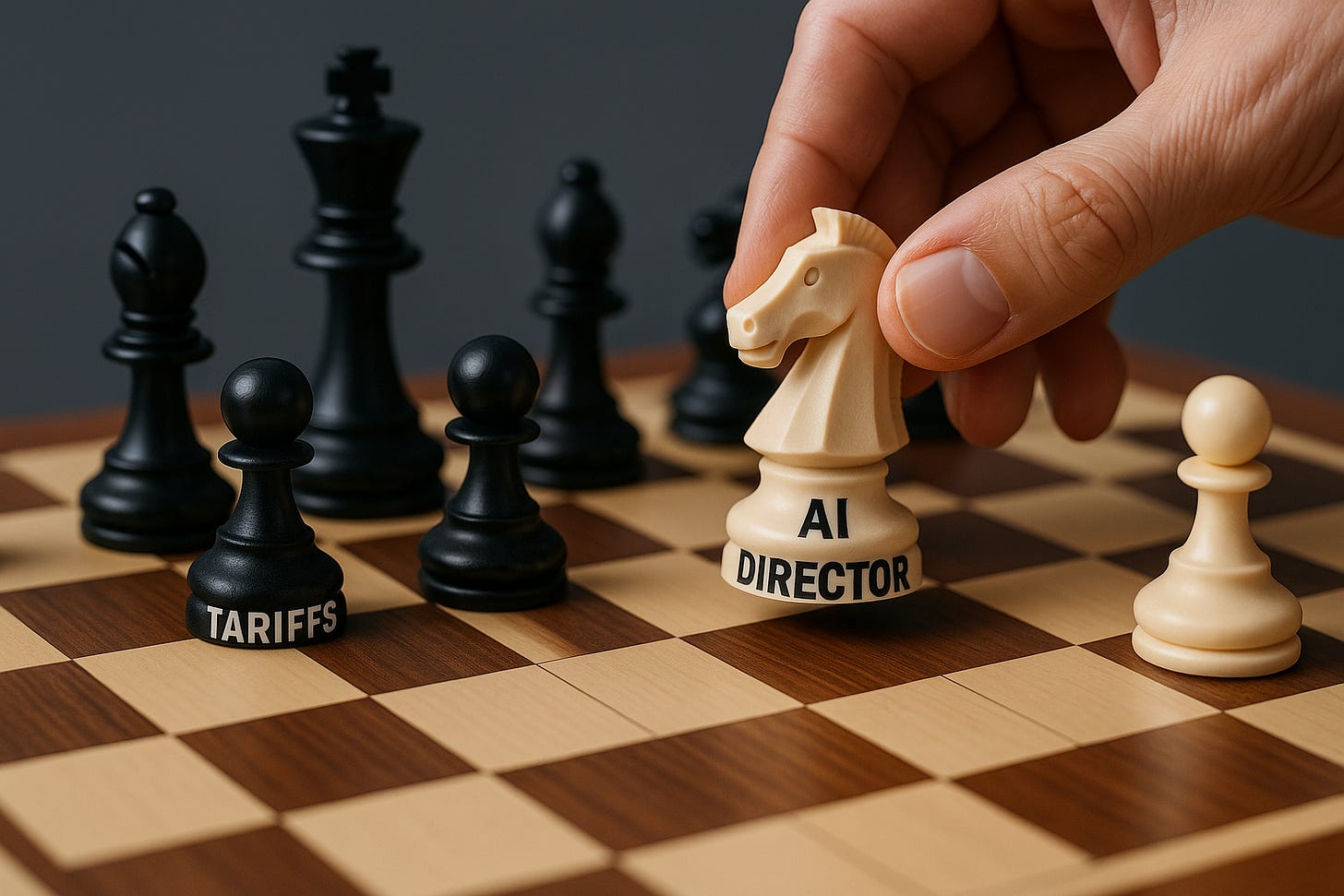Tariffs: The AI Accelerant
And How Shopify's AI-First Approach is the Playbook for Performance.
When history tells the story of the 2020s, it will begin with a pandemic that changed everything.
COVID-19 reshaped our world, forcing us to reimagine how we work, connect, and create value.
It forced millions to work from home, caused mass unemployment, and led to the lowest employee engagement rates in 11 years.
But the greater story is what emerged from that global disruption.
After COVID fundamentally changed how we work, ChatGPT launched and was the fastest-growing consumer software application in history, gaining over 100 million users in two months.
A workforce already questioning traditional work models was suddenly presented with tools that could both enhance productivity and potentially replace jobs—creating a perfect environment for both rapid adoption and deep anxiety.
The stage is set.
AI isn't just another technology—it will end up reshaping society in the balance of this decade.
More Economic Shifts
We're facing what could be another global economic recalibration, sparked by yet a new wave of political and market changes.
Tariffs are on the table. Supply chains are shifting. And companies are—once again—reassessing how they create value.
But here's what many people are missing:
This kind of disruption will supercharge AI adoption.
When businesses face inflation, rising costs, and profit pressure, there are only a few levers they can pull:
Raise prices (and risk losing customers)
Cut employees (and risk morale and delivery)
Or: automate smarter and faster than the competition
And that's where AI comes to the rescue.
Here’s What's Coming
Last week, Tobi Lütke, CEO of Shopify, issued a directive to his 8000 employees:
“Using AI effectively is now a fundamental expectation of everyone at Shopify. Before asking for more Headcount and resources, teams must demonstrate why they cannot get what they want done using AI.”
While this might sound like a cost-cutting measure, there's a deeper value here:
We’re not replacing humans with AI—we’re liberating human potential from tasks that don't require our unique gifts, and feel like drudgery anyway.
This signals a new model of work where:
We do what we do best: vision, creativity, empathy, connection
AI amplifies our ideas, and handles repetitive tasks that drain us
Together, we create possibilities neither could achieve alone
Shopify isn't alone.
They're just early, and in the public eye.
At Coachfully.AI we help small and medium businesses execute Shopify’s strategy: empower each employee to fully adopt AI in their individual workflows.
Soon, every knowledge-based company will embrace this directive, or miss the wave of business performance, employee engagement, and abundance it creates.
The Rise of the AI Director
This is the moment we've been talking about in the We 💙 AI essay series.
We are leaving the introductory phase of the AI Dabbler and entering the age of the AI Director.
This will spur the Great Re-Engagement, as knowledge workers transform drudgery into joy, by becoming master orchestrators of custom AI’s that help them do the best work of their lives.
In this new world everyone has the opportunity to be an AI Director, which is about personalized AI adoption to make significant improvements:
No one has to write long emails or reports: you tell AI what to write and refine the results.
Instead of searching through endless links and data: you direct AI to find recommendations, patterns and insights.
No more wasting hours on repetitive tasks: you easily create systems where AI handles the routine.
Rather than reading books or watching training: you get expert AI coaching for deliberate practice of any skill.
This will fundamentally change how we work—from doing everything yourself to orchestrating AI to always work alongside you.
Navigating the New Landscape
Shopify's memo and the potential tariffs aren't warnings—they're wake-up calls.
They're telling us that the future isn't coming—it's here.
The companies that thrive won't be the ones with the biggest teams, but those where every person directs AI to amplify their unique capabilities.
The individuals who flourish won't just be using AI for occasional tasks—they'll be orchestrating it across their entire workflow.
This is your moment to shift from AI Dabbler to AI Director:
Training AI on your specific knowledge and processes
Delegating routine work to focus on high-impact thinking
Designing systems, not just requesting outputs
Creating compounding advantages that others can't easily replicate
The economic pressures we're facing aren't obstacles to progress—they're accelerants.
They're the catalyst that turns AI from a nice-to-have into a must-direct.
So take Shopify's memo as your personal call to action. Ask yourself:
"How can I direct AI to improve everything I do?"
Because that question doesn't just lead to survival.
It leads to abundance.

